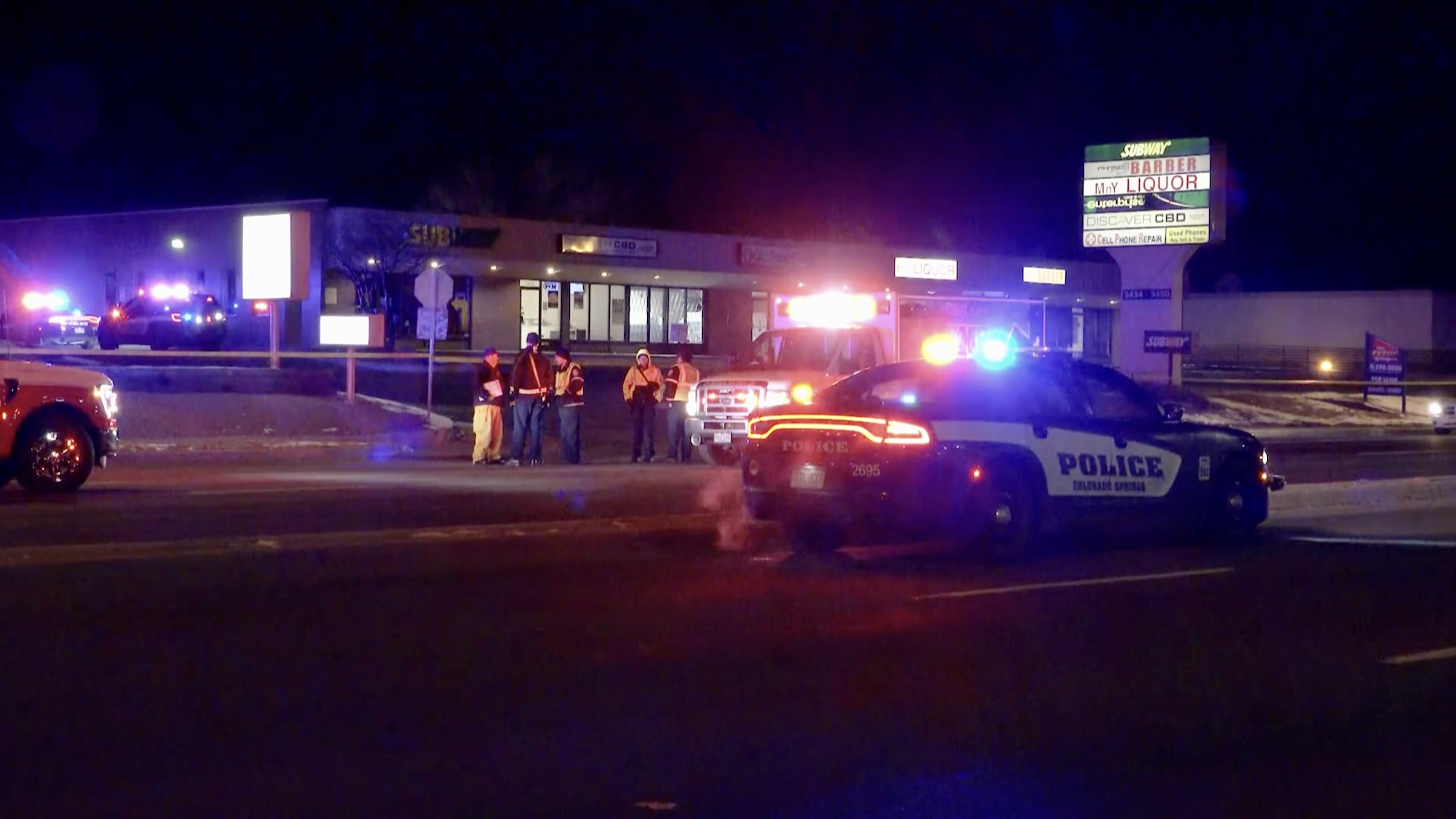COLORADO SPRINGS, the United States, Nov. 20 (Xinhua) -- Authorities said they are investigating Saturday's mass shooting in a Colorado Springs nightclub, which left five people dead and at least 25 others injured, through the lens of a hate crime.

(Photo: CGTN)
The suspect, identified as Anderson Lee Aldrich, a 22-year-old man, immediately started shooting as he entered Club Q, a LGBTQ nightclub, local police told media.
Two patrons "tackled" the perpetrator and several held him on the ground before officers arrived at 12:02 a.m. (1902 GMT) Sunday morning local time, police said.
Club Q "is devastated by the senseless attack on our community," said the club in a statement posted on its Facebook page, describing the shooting as a "hate attack."
Police said they are also investigating the shooting through the "lens" of a hate crime, but that other charges, such as first-degree murder, would be pursued first, reported The Denver Post, a major daily newspaper in Colorado.
While expressing their sympathies for the victims and their families, social media across the United States was condemning hate crimes and their rise against minorities and the gay community.
"This is horrific, sickening, and devastating," Colorado Governor Jared Polis, the first openly gay governor in US history, said in a statement released Sunday.
A study, conducted by Hate Free Colorado (HFC) and released last month, said that in the last five years, three out of every 10 Coloradans experienced a hate crime and that "most of those crimes go unreported."
"Coloradans of all backgrounds are experiencing hate crimes and bias-motivated incidents -- including Black and Latino, Asian, white, Christian, Muslim, Jewish, Catholic, and more," added the study, which analyzed data from 5,000 Coloradans between May and July.
It said 61 percent of those who said they experienced bias or a hate crime attributed it to their race, ethnicity, or ancestry. This means ethnic minority groups are 1.5 to two times as likely as white Coloradans to experience hate crimes, the HFC study found.
In 2016 there was a mass shooting at the Pulse Nightclub in Orlando Florida by a gay-hating gunman that killed 49 party-goers and wounded 53 more before he was shot to death by police, one of the deadliest mass shootings in US history.
The Club Q shooting brought back traumatic memories for family members of the victims and survivors of the Pulse shooting, USA Today reported Sunday.
"From Pulse to Colorado Springs to so many other lives stolen from us -- this has occurred for far too long," Human Rights Campaign incoming president Kelley Robinson said in a statement to USA Today.
"Mothers and fathers and siblings and children, I mean, whole communities are affected," she said. "They're in for a horrible rest of their lives ... We've created a hell for a whole other group of Americans," Robinson added.
Colorado Springs police said Sunday they were still investigating the gunman's motive, including whether it was a hate attack. Police said that two firearms, including a long gun, were recovered at the scene. The FBI is assisting the local police in the investigation.


